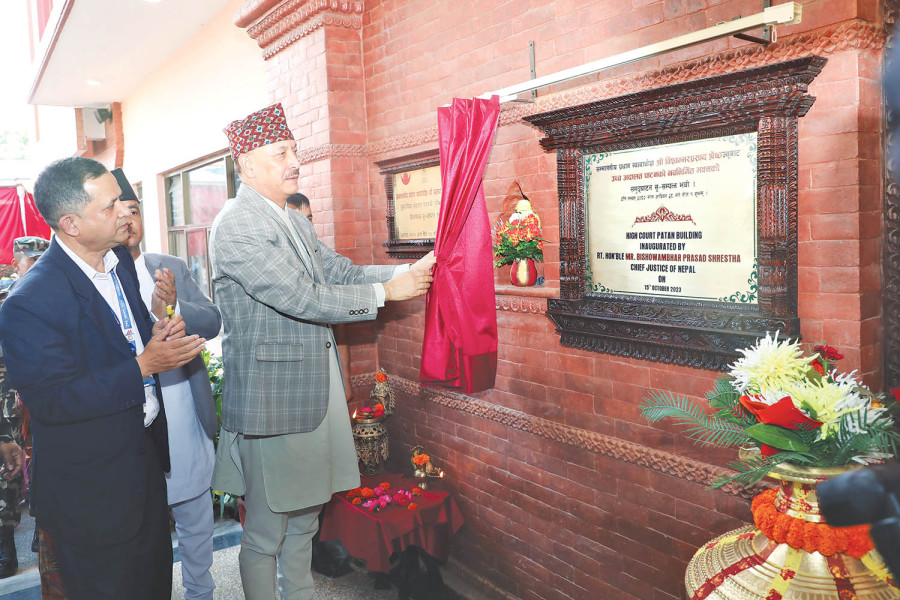National
Courts, with huge case backlog, go on two week leave
The judiciary leadership, however, does not fail to state clearing pending lawsuits is a priority
Post Report
Dashain holidays in the government calendar start on Saturday, giving employees six days for festival celebration until October 26. The festive break in most private institutions is shorter.
However, there is an institution in the country that closes for two weeks during Dashain. Like school students, most of the justices and judges in Nepal’s three tiers of courts enjoy the longest autumn break. Except for habeas corpus, all hearings in court cases will be stopped for the duration of the vacation.
Paradoxically, the courts have a huge backlog of cases and the judiciary leadership often claims that clearing older cases is a priority. Addressing a function at the Patan High Court on Sunday, Chief Justice Bishowambhar Prasad Shrestha said his priority was to clear all the cases older than two years.
"The judiciary has now come to the right track. We are committed to clearing older cases," he said—on the day the courts went on a long recess.
As per the annual report of the Supreme Court submitted to the President in August, only 20.9 percent of the cases were concluded in the fiscal year 2021-2022. Of the 38,730 cases in the court’s docket in the fiscal year, including 10,953 newly registered, verdicts were given in only 8,096. It left a backlog of 30,634 cases for another fiscal year. As many as 4,858 cases are older than five years.
The situation was no different in the fiscal year 2020-2021. Of the 33,466 cases, including the backlog, the court could clear just 5,689 that year.
The Judicial Council’s failure to appoint judges to high courts has hindered their performance. The high courts cleared 60.56 percent of the cases in the fiscal year 2021-2022, leaving 26,998 cases pending. The district courts have 107,130 pending cases, even with a 63.45 percent clearance rate.
Those who closely follow the court say it’s beyond their knowledge why the court continues to shut its services for two weeks while so much work remains. "It is illogical to close the courts for two weeks while all other public offices are closed only for a week," Gopal Krishna Ghimire, president of Nepal Bar Association, told the Post. "The present leadership missed the opportunity to end the practice of long closure."




 9.7°C Kathmandu
9.7°C Kathmandu













